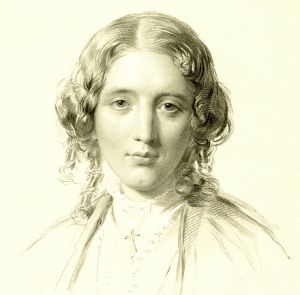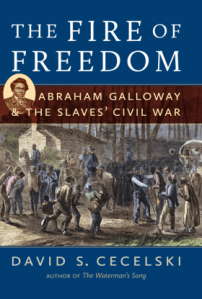Another memory. I am at the Moorland-Spingard Research Center in the Founders Library at Howard University, in Washington, DC. In the papers of a New England abolitionist, I find a file of Civil War letters written by an African-American woman named Mary Ann Starkey.
Walt Whitman’s poems in my last post reminded me of another, very different but no less moving reaction to Pres. Lincoln’s assassination.
At the time Starkey wrote them, she was in New Bern, N.C., where she had been born into slavery in 1835.

Moorland-Spingarn Research Center, Founders Library, Howard University.
She had been a slave until the Union army captured New Bern early in the war. She could not read or write well, if at all, but she dictated her letters to Union officers who had become her friends.
At the time she wrote the letters, Starkey ran a boardinghouse where some of the highest-ranking Union officers stayed during the Federal Occupation. Other officers jostled for a place at her dinner table, which was considered the finest in the old seaport.
Starkey was also a determined social activist. She was president of a black women’s group that raised funds and gathered food and clothing for the thousands of fugitive slaves that fled to New Bern.
Her home hosted a Bible study and literacy classes for black women getting their first taste of freedom.
Starkey also played an important role in the clandestine councils of black leaders that operated in New Bern during the war. They organized political groups and at least some of them acted as Union spies, scouts and guides behind enemy lines.
Starkey also joined—and probably helped to found— the John Brown chapter of the National Equal Rights League, one of the first civil rights groups in the history of the South. That was in New Bern at the end of 1864.
Her letters at Howard are eye opening. Eventually, I discovered dozens of them at other archives, too.

Harriet Beecher Stowe, abolitionist and writer, best known for her novel Uncle Tom’s Cabin. She and Mary Ann Starkey grew acquainted either through abolitionist Edward Kinsley or through her brother, James Beecher, who was second in command of a Union regiment of black soldiers raised in New Bern, N.C., in 1863. Engraving by Francis Hall, 1853. After original by George Richmond.
Together they give a perspective on the Civil War that has rarely been seen before: a former slave woman’s firsthand view of the war as black southerners dared to thrust themselves onto the world stage for the first time.
The letters also reveal Starkey’s most private thoughts: her fears for her daughter, when she is still a slave in Hillsborough, N.C.; her plans, immediately after the war, for her daughter’s wedding; and her correspondence—during the war— with Harriet Beecher Stowe.
At Howard, I also find Starkey’s reaction to Lincoln’s assassination:
“There is little heart left for rejoicing [over the war’s end] since the sad news of the death of our President,” Starkey wrote a friend on April 20th, 1865. “It must be alright, as God permitted it, but it does seem very hard to us—were it not for the thought that there was one over our nation whom death nor disease can never affect, discouragement would indeed fill our hearts.”

Thank you for this memory. I will go back through The Fire of Freedom for more information on Mary Ann Starkey.
LikeLike
Very helpful information needed to share with a new acquaintance, “Julie “.
Hoping it will help with her graduate history class.
LikeLiked by 1 person